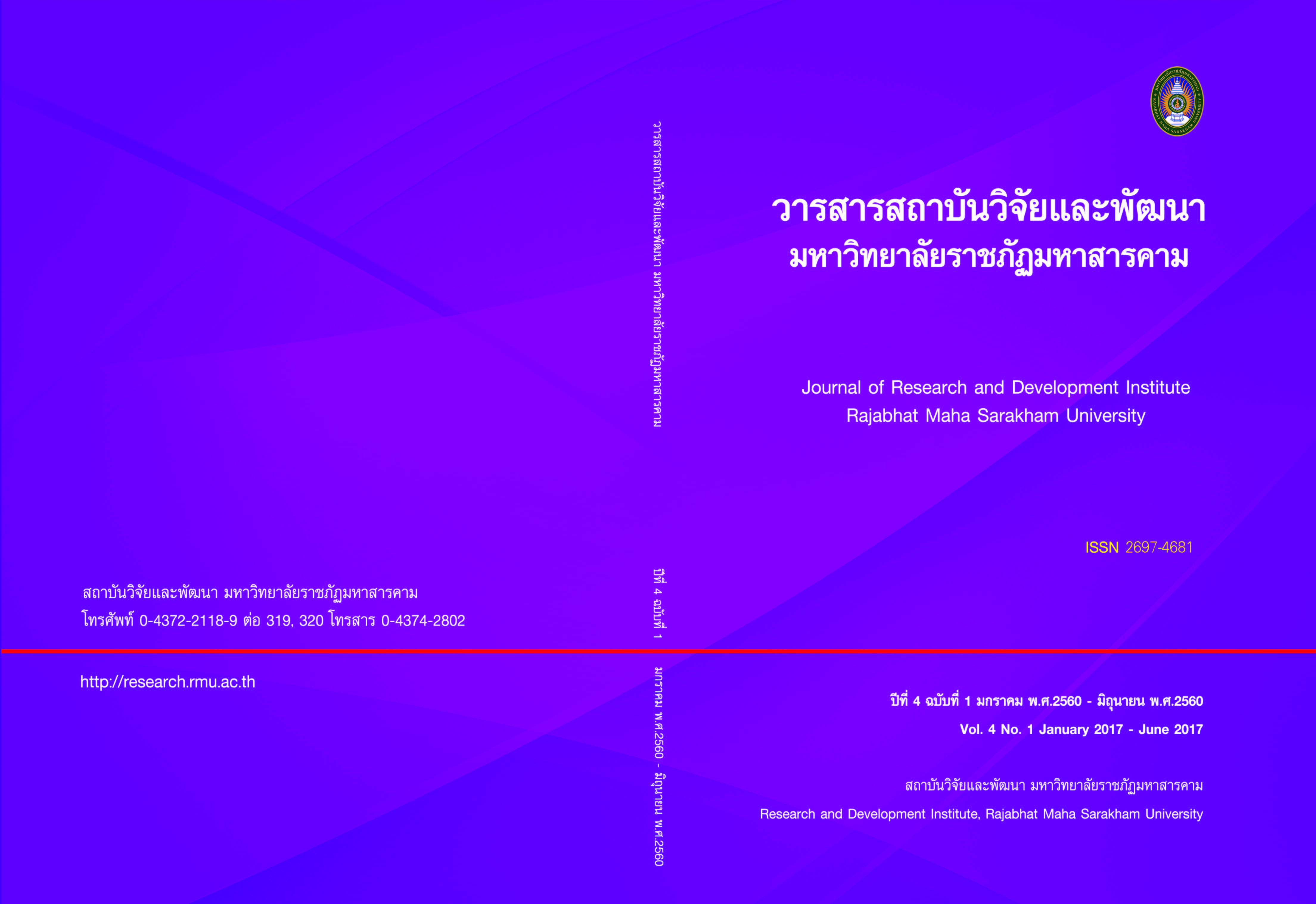The Literary Consistency: Hypothesis Research
Abstract
The literary consistency is a science that hypothesis research on the top of knowledge in research. Thus, when problems or questions that need answers, the first thing to be done is to determine whether answer the question started or not. Then, there is problem or question that was wanted to be answer the first thing to do is how to find out, if it is found to answer. Researchers will use responses as a guide to determine answer to problem by starting following some investigators may not find a matching answer questions, but it may have been to seek an answer to it and sometimes may find answers to choose more than one answer. The researcher must select an answer. One may be combination of answers would be researcher must select answer, other may be made after care. To define problems and research topics need to determine answer that is “the literature consistency” which be explain as major issue on following 4 issues; 1) meaning of literature consistency, 2) purpose of literature consistency, 3) Literary sources, and 4) literary consistency method.
Knowledge of science is not something that has come easily just from observation and collection of facts only, thus, if it derived by using hypothesis that mean knowledge of science will be set from hypothesis. These answer has shortened version of problem can be checked for accuracy by empirical evidence. “Hypothesis research” it could be said knowledge of science is not something comes easily by observing phenomenon and collecting facts only, but only assuming, science is knowledge gained from exploring ideas for research hypotheses. The answer is very brief description of problem as major for 15 issues following: 1) determination research hypothesis, 2) content assumptions important research, 3) definition of research hypotheses, 4) research hypotheses of Science, 5) general conclusion 6) duty of hypothesis research, 7) model of research hypothesis, 8) research hypothesis of a single variable and more than one variables, 9) research hypotheses identified sector relation relevant and not relation relevant, 10) research hypotheses of international standards and research hypotheses of Statistic, 11) research hypotheses type of times and situation, 12) hypotheses descriptive statistical research with hypotheses statistic Research, 13) analysis of research hypotheses, 14) technical discovery knowledge of science research hypothesis, 15) summary of research hypothesis.
References
ศุภชัย ยาวะประภาษ. (2544). การวิจัยทางรัฐประศาสนศาสตร์. กรุงเทพฯ : ภาควิชารัฐประศาสนศาสตร์ คณะรัฐศาสตร์ จุฬาลงกรณ์มหาวิทยาลัย.
สัญญา เคณาภูมิ. (2557). “การสร้างกรอบแนวคิดการวิจัยเชิงสำรวจทางการบริหารจัดการ” วารสารวิจัยเพื่อพัฒนาสังคมและชุมชน. มหาวิทยาลัยราชภัฏมหาสารคราม. 1 (1) : สิงหาคม พ.ศ.2556- มกราคม พ.ศ.2557.
อุทัย บุญประเสริฐ. (2558). “แนวทางการเขียนบทความวิชาการ”. วารสารวิจัยเพื่อพัฒนาสังคมและชุมชน มหาวิทยาลัยราชภัฏมหาสารคราม. 2 (1) : สิงหาคม พ.ศ.2557- มกราคม พ.ศ.2558.
Carl Hempel, (1965). Aspects of Scientific Explanation and other Essays in the Philosophy of Science. New York : Free Press.
James David Barber, (1955). The Presidential Character : Predicting Performance in the White House. 4th ed., New Jersey : permission of Prentice-Hall.
kerlinger, (1973). Multiple Regression in Behavioral Research. New York : Holt, Rinehart and Winston.
Poincare, (1952). Science and Hypothesis. New York : Dover.
Popper, (1963). Conjectures and Refutations. London : Routledge and Keagan Paul.
Selltiz, et al., (1959). Research Methods in Social Relations. New York : Holt, Rinehart and Winston.
Stinchcombe. (1968). Constructing Social Theories. University of Chicago Press
Zetterberg. (1963). The Civic Culture : Political Attitudes and Democracy in Five Nations, Princeton : Princeton University Press.
Downloads
Published
How to Cite
Issue
Section
License
Articles that are published are copyrighted by the authors of the articles







